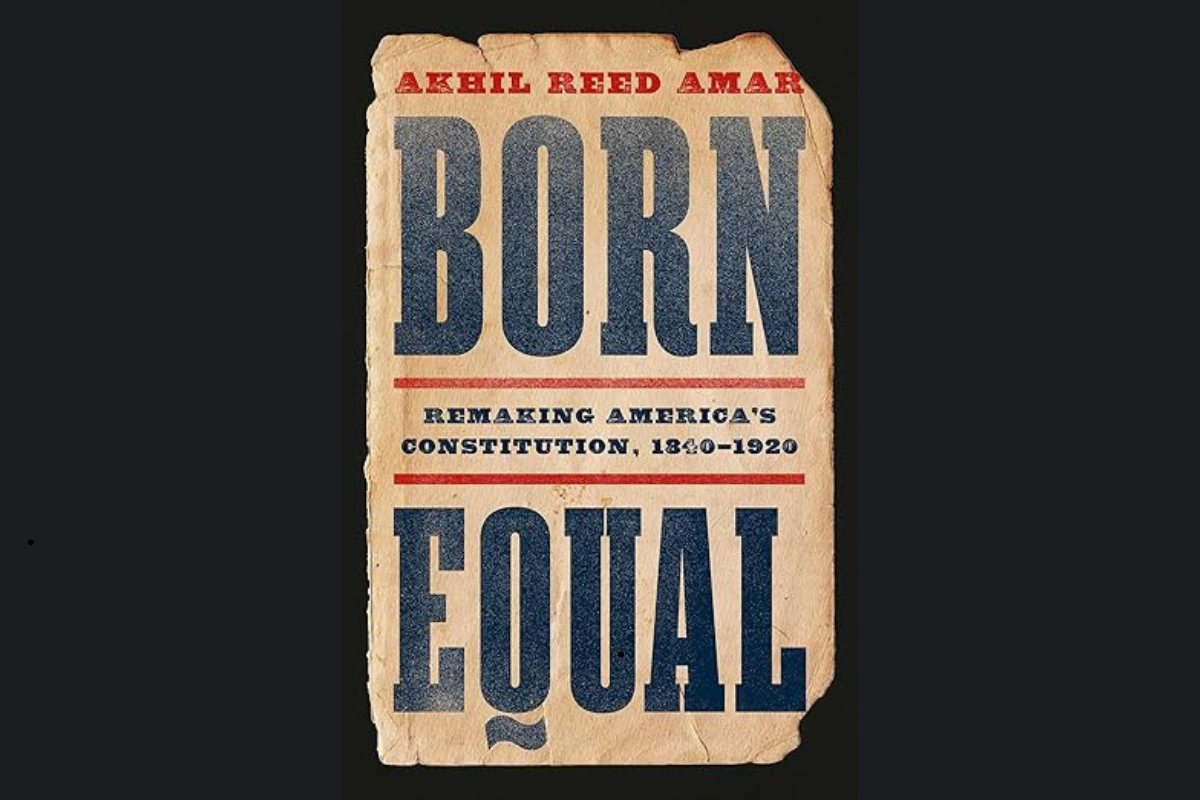A New Republic
The Roman virtues of civic duty and freedom influenced the Federalist and Anti-Federalist debates, demonstrating the United States Constitution’s connection to a centuries-long legacy of ideals. Over its thousand-year history, Rome evolved from a monarchy from 753 BCE to 509 BCE, a republic from 509 BCE to 27 BCE, and an empire from 27 BCE to 476 CE, each era marked by a commitment to virtues that remain relevant. Republicanism, founded on freedom from tyranny, expected citizens to exhibit a certain level of civic duty in their public and private lives.
Marcus Tullius Cicero, a Roman lawyer and consul, wrote about the ideals and standards the Romans believed citizens should uphold. Cicero believed that without virtue a republic would fall into chaos, and that virtue allowed men to act for not only the good of themselves but for those around them as well. Though the Roman Republic fell over 2000 years ago, its legacy endures. The virtues displayed by the Romans inspired a group of men in the 1700s who changed the course of United States history forever. In a time of profound uncertainty, the writers of the Antifederalist and Federalist Papers used the pseudonyms Brutus and Publius to reflect on the fall of the Roman Monarchy and persuade the new country to see their views on the Constitution.
Rome had seven kings, ending with Tarquinius Superbus, a man known as a tyrant who used violence and intimidation to keep his power. While historians regard Tarquinius as a poor ruler, it was his son’s actions that led to the downfall of the monarchy. The king’s son, Sextus Tarquinius, raped a nobleman’s wife named Lucretia. Devastated about the encounter, Lucretia took her own life after telling her husband, Lucius Tarquinius Collatinus, about the account. Hearing about the incident, a distant relative named Lucius Junius Brutus was outraged about the injustice and swore vengeance. Brutus assembled a group of co-conspirators whose purpose was to gather support from the populus. With the support of the Romans weary of Tarquinius’s rule, Brutus and Collatinus were able to overthrow the monarchy by sending the king into exile. In need of new leadership, both Brutus and Collatinus became the first consuls of Rome (Livy bk II).
Brutus symbolized civic duty and the rejection of tyranny, and the Anti-Federalists used this pseudonym to criticize the possibility of tyranny under the new Constitution. The Roman Brutus consistently put the people and the republic before himself, a model of selflessness noted by Cicero, who identified characteristics of a good ruler: “and when he senses that he has been born for political fellowship, he will think that he must use not only precise argument but also speech that is continuous and extended more broadly, through which he may rule peoples, stabilize laws, chastise the wicked, protect the good, praise famous men, issue precepts for health and fame suitable for persuading his fellow citizens, be able to urge to honor, be able to turn back others from shame, be able to console the stricken, and be able to hand down in everlasting memorials the deeds and resolutions of the courageous and the wise with the ignominy of the wicked” (De Legibus book 1 section 62). Brutus was committed to the republic, and even when a conspiracy involved his sons, he condemned them to death to protect the republic. He also convinced Collatinus to resign due to his family name, “Tarquinius,” which reminded the people of the previous king. Brutus symbolized how civic duty should transcend personal gain, and his legacy of standing up against tyranny inspired the Anti-Federalists to stand against what they believed was tyranny in their government.
In 1787, a new constitution was written for the United States, which included a focus on a stronger centralized government. The Anti-Federalists wrote counteressays to the Constitution (now called the Anti-Federalist Papers). These essays expressed concern that the new constitution would create a government that would infringe on the rights of the people; “We have seen that, in all republics, there is a natural tendency to centralization of power; and when that tendency is not checked by some counteracting cause, it leads to the destruction of liberty. It is therefore essential that the people should be always in the possession of a power to resist the encroachments of the government” (Anti-Federalist No. 1). The author believed the new system would take away states’, and therefore citizens’ rights, and degenerate into the tyrannical monarchy they had fought so hard to get rid of.
The Anti-Federalists wanted personal freedoms to be expressed with a clear cap on central power “A free republic, a government that holds power in trust for the people, must be small in size and republican in character, so that the citizens can directly participate in governing and maintaining their liberty” (Anti-Federalist No. 2). The author using the name Brutus invoked the legacy of a figure who stood against tyranny to convince his readers that the values of freedom the people aligned with were not displayed in the Constitution. Just as the Roman Brutus stood up to an overpowerful central government for the sake of justice and to bring liberty to the people of Rome, so to the Anti-Federalists believed in the same goals; “It is here taken for granted, that all agree in this, that whatever government we adopt, it ought to be a free one; that is should be so framed as to secure the liberty of the citizens of America, and such an one as to admit of a full, fair, and equal representation of the people” (Brutus No. 1).
When Collatinus resigned, one of the core conspirators, named Publius Valerius Publicola became the next consul in his place. Publius focused on the balance of government and ensuring the power remained with the people. For their response to Anti-Federalist criticisms, the Federalists used Publius’ name to defend their new system of government. The Federalists, who were trying to pass the new constitution, were not deterred by critics. Alexander Hamilton, James Madison, and John Jay published 85 rebuttals between 1787 and 1788, written to convince the public to support the new constitution. While written by all three men, each essay signs off with the pseudonym Publius.
To convince the people of the necessity of a centralized government rather than the state-focused Articles of Confederation, the authors wrote about the checks and balances that would prevent tyranny: “the true test of a republic is the balance between the many and the few” (Federalist No. 68). Checks and balances were the key to the new constitution. In Federalist 51, Madison made clear that the first role of the government is to control the people, and the next is to work on itself: “If men were angels, no government would be necessary. If angels were to govern men, neither external nor internal controls on government would be necessary. In framing a government which is to be administered by men over men, the great difficulty lies in this: you must first enable the government to control the governed; and in the next place, oblige it to control itself” (Federalist No. 51).
While the Anti-Federalists used Brutus to symbolize the need to stand against tyranny, the Federalists invoked Publius to represent the need for a centralized government built on checks and balances. When he was consul, Publius passed several reforms that limited the power of the magistrates. His laws gave citizens the ability to challenge harsh rulings of the magistrate and put consequences on individuals who sought to make themself a king. Publius’ humility led the people to give him the name Publicola, “one who courts the people.” The Federalists use Publius to demonstrate that the Constitution, while creating a stronger central government, was still designed for the good of the people.
In life, Brutus and Publius worked together to form a new government for the Roman people, but thousands of years later, they were pit against each other in a battle over America’s new republic. Both the Anti-Federalists and Federalists chose their pseudonyms purposefully, reflecting what each Roman represented. Brutus was a symbol against any form of tyranny and the civic duty one might undertake to do what is best for the common good. Publius was a strong government leader who also promoted balance and freedom.
Freedom, civic duty, and the common good, which inspired the Anti-Federalist and Federalist Papers, are still important in the United States today. These virtues can be observed in systems such as government regulations, public protests, jury duty, public education, and social services, which benefit the entire community: a constant reminder that people are more important than power. As Cicero insisted: “Nature too, by virtue of reason, brings man into relations of mutual intercourse and society with his fellow-men; generates in him a special love for his children; prompts him to promote and attend social gatherings and public assemblies; and awakens in him the desire to provide what may suffice for the support and nourishment, not of himself alone, but of his wife, his children, and others whom he holds dear and is bound to protect” (Book 1 De officiis).
Works Cited
Anti-Federalist Papers
Cicero. On Duties (De Officiis).
Cicero. The Laws (De Legibus).
Hamilton, Alexander, James Madison, and John Jay. The Federalist Papers.
Livy. The Early History of Rome: Books I–V of The History of Rome from Its Foundation.





